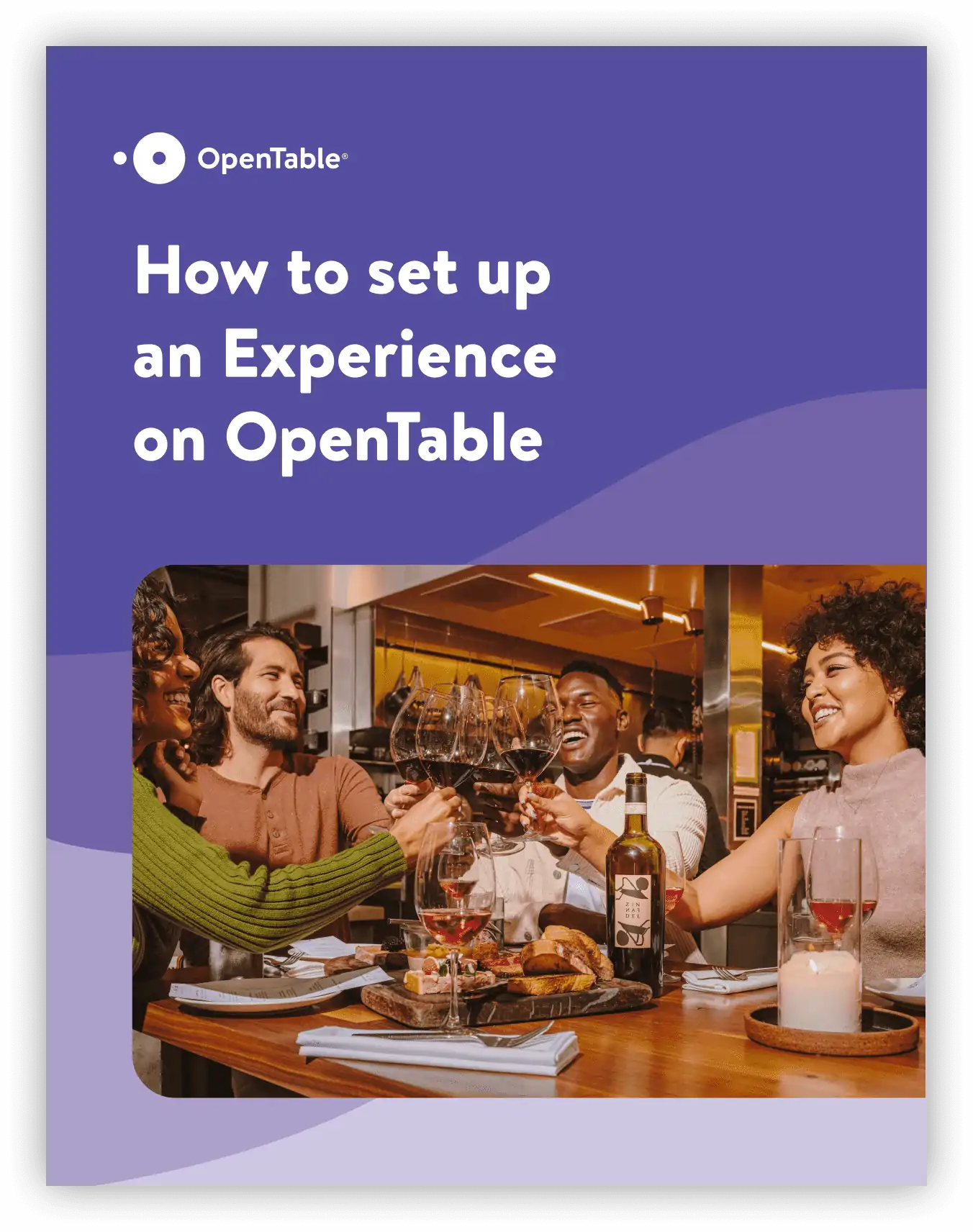Generation Z, people born between 1997 and 2012, are now entering the workforce. They bring both youthful energy and confidence: 62% of them believe they can make an impact on the world. Restaurant owners can draw job applications from this demographic if they take some time to get to know what’s most important to them. Though certain things—payment, benefits, company culture—are vital to people of all generations, there are some special considerations when it comes to Gen Z.
Here’s what to keep in mind if you’d like them to fill out the ranks of your team now and in the years ahead:
Highlight pay and benefits
Gone are the days of pizza and ice cream parties as a way of inspiring employees. If the pay is good, that’s motivation enough. Unlike their millennial counterparts who prioritize experiences and benefits, Gen Z is more financially motivated. Instead of spending money on knick knacks or merch, Gen Zers would prefer to see that money hit their paychecks. They could also use some time off—58% of them reported burnout in a 2021 survey from Indeed.
When the budget is too tight for raises, consider alternative pay perks. Newer benefits, such as earned wage access (EWA), costs restaurants very little but can be valuable to employees. Employees can get paid what they’ve earned between pay days. This can help those in tough financial situations—which describes 46% of Gen Z, according to a study from Deloitte.
The other ask from Gen Z: healthcare. Many in this generation are still currently supported by their parents or guardians’ insurance plans. A majority, 70%, currently receive some form of healthcare specific financial support, according to a study from Gen Z Health. As Gen Z starts to age out of their parents’ insurance policies, offering healthcare benefits and paid sick leave can be an easy way to attract them.
Foster a healthy work environment
There are a myriad of ways to create a safe environment in the workplace. Start by developing a strong and clear reporting structure for any harassment allegations. Depending on the size of the staff, it’s recommended that two individuals are selected to receive complaints: one high- and one mid-level. Selecting multiple liaisons can help to reduce uncomfortable power dynamics. When team members feel safe and comfortable reporting any possible harassment or discrimination, it helps resolve problems quickly so everyone can focus on doing the work they love.
Schedule Harassment training at the beginning of every team member’s employment and run a refresher every year. Make employees aware of the restaurants’ harassment policy and take reports seriously.
Creating a positive work culture will reduce turnover among employees of all ages, but the effect might be pronounced in Gen Z, who are more likely than any other generation to switch jobs over the course of a year, according to data from LinkedIn.
Focusing on mental health—especially burnout and anxiety—can keep team members satisfied in the workplace. Gen Z is 27% more likely than other generations to describe their mental health as fair or poor, according to the American Psychological Association. Offering resources, as part of their healthcare benefit or through separate outsourcing, can encourage Gen Zers and the larger team to focus on their mental health.
Focus on diversity
Sixty two percent of Gen Z sees increased diversity as good for society. They value diversity more than other generational groups, according to a Pew Research study. That’s another good reason to dedicate time and resources to recruiting employees across the widest variety of ages, races, and backgrounds. When an applicant walks in and sees different kinds of people working, especially someone who looks like them, it lets them know diversity matters and makes them feel welcome.
To help make this a reality, consider adding unconscious bias training to yearly employee training. Have an open conversation with team members on how the restaurant can improve its diversity and inclusion practices. And take the time to educate yourself and encourage staff to do so as well. And remember, even if the restaurant has a diverse staff, there is always room to improve diversity, equity, and inclusion practices.
Offer mentorship and training
Given that many Gen Zers are beginning their careers in the restaurant industry, a strong mentorship and training program can be the key to keeping them around long-term. Many are deciding if the service industry is right for their futures. Offering an in-depth training course and mentorship can be a draw to get them in the door.
Once hired, take the time to train new employees. Mastering new skills takes practice, so be patient. In the training schedule, be sure to include an introduction to leaders, ingredient and menu knowledge. Address service standards and POS training. Make sure employees know where to learn more about the restaurant and who they can ask for help.
Implement a standard and clear review process to help ease performance stress. That process should include regularly scheduled meetings during which employees receive constructive feedback to help them do a better job and have the opportunity to share their own feedback about the workplace.
Mentorship can be a massive benefit for new employees. It can help to create a supportive kitchen culture, offer hands-on training for a broad range of skills, and provide employees with new knowledge to succeed. If your restaurant doesn’t have the bandwidth in house, call in a favor and see if anyone in the industry can take employees under their wing. Gaining a different perspective from outside one specific restaurant can be a win for employees and for the restaurant.
During the training and mentorship process, offer new and existing employees the opportunity to try out job rotation in different areas. While some team members might know what they want from the get go, for others, trying their hand at a new skill can be inspiring. Flexibility in skills and advancement alerts Gen Z prospects that there’s always room for growth.
Play up social awareness and responsibility
Gen Zers want to work for companies that take action on their promises. Restaurants that focus on sustainably sourcing ingredients or partner with local soup kitchens to donate leftovers may have special appeal for this crowd. In fact, in spite of being more money-motivated than other generations, 51% of Gen Z would take a lower salary if their employer was environmentally responsible.
If the restaurant is not currently partnered with a charity, consider offering up resources or time to local organizations. Even coordinating an optional volunteer day for team members can be a great bonding experience while helping out the community. Sponsoring a local sports team or production can boost public events while also raising awareness for the restaurant.
A study from Deloitte showed that 77% of Gen Zers aim to work at an organization whose values align with their own. Have a genuine conversation with employees and demonstrate that you, like these restaurants, can walk the walk. If possible, be flexible when employees want to volunteer or support causes that are important to them.
While appealing to the Gen Z workforce might seem like a big ask, most requirements from the zoom generation can help build your restaurant to last. This generation will decide what stays and goes further down the line, so getting them in your corner and supporting them can ensure success for both you and the literal future generation.




